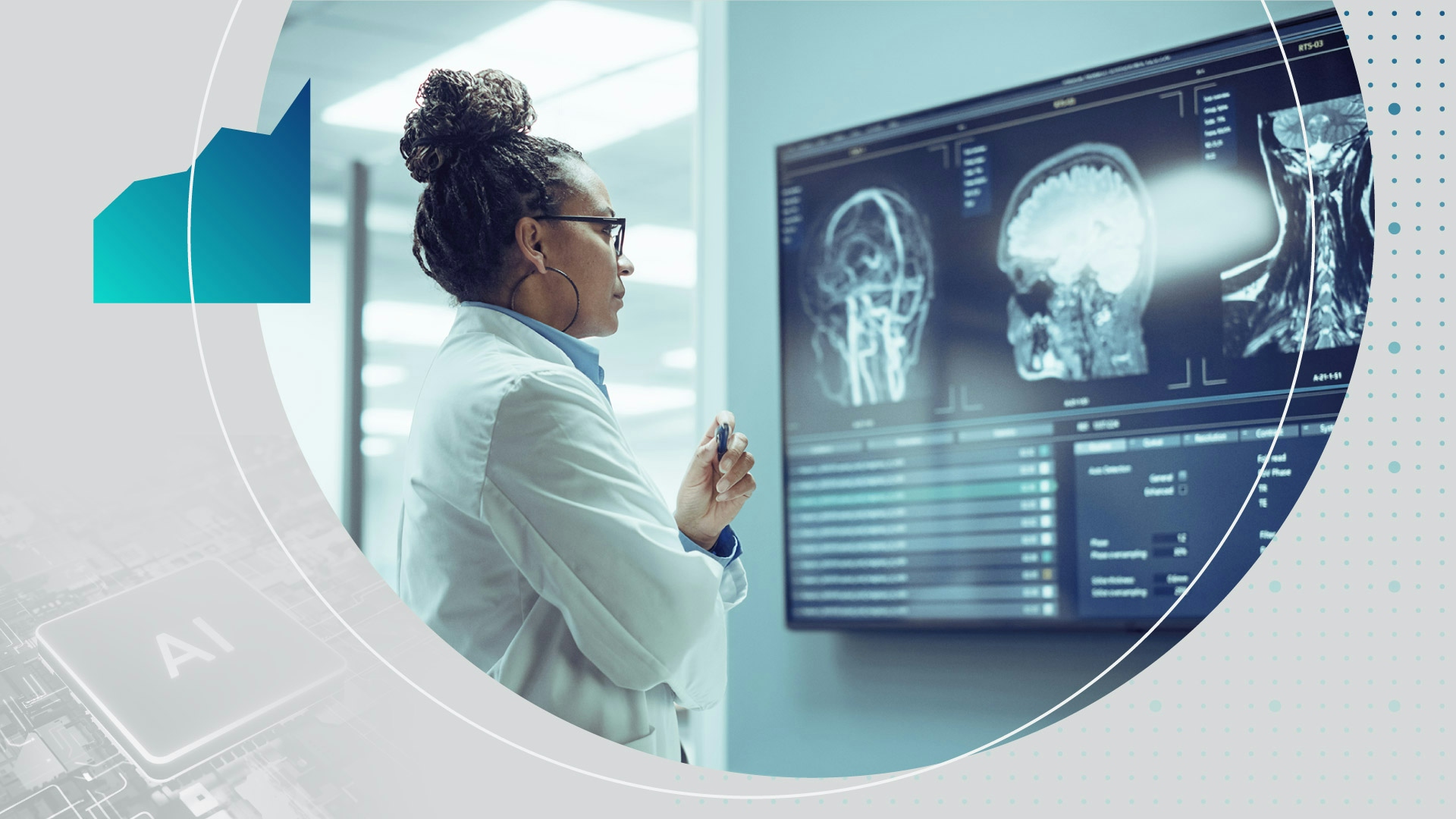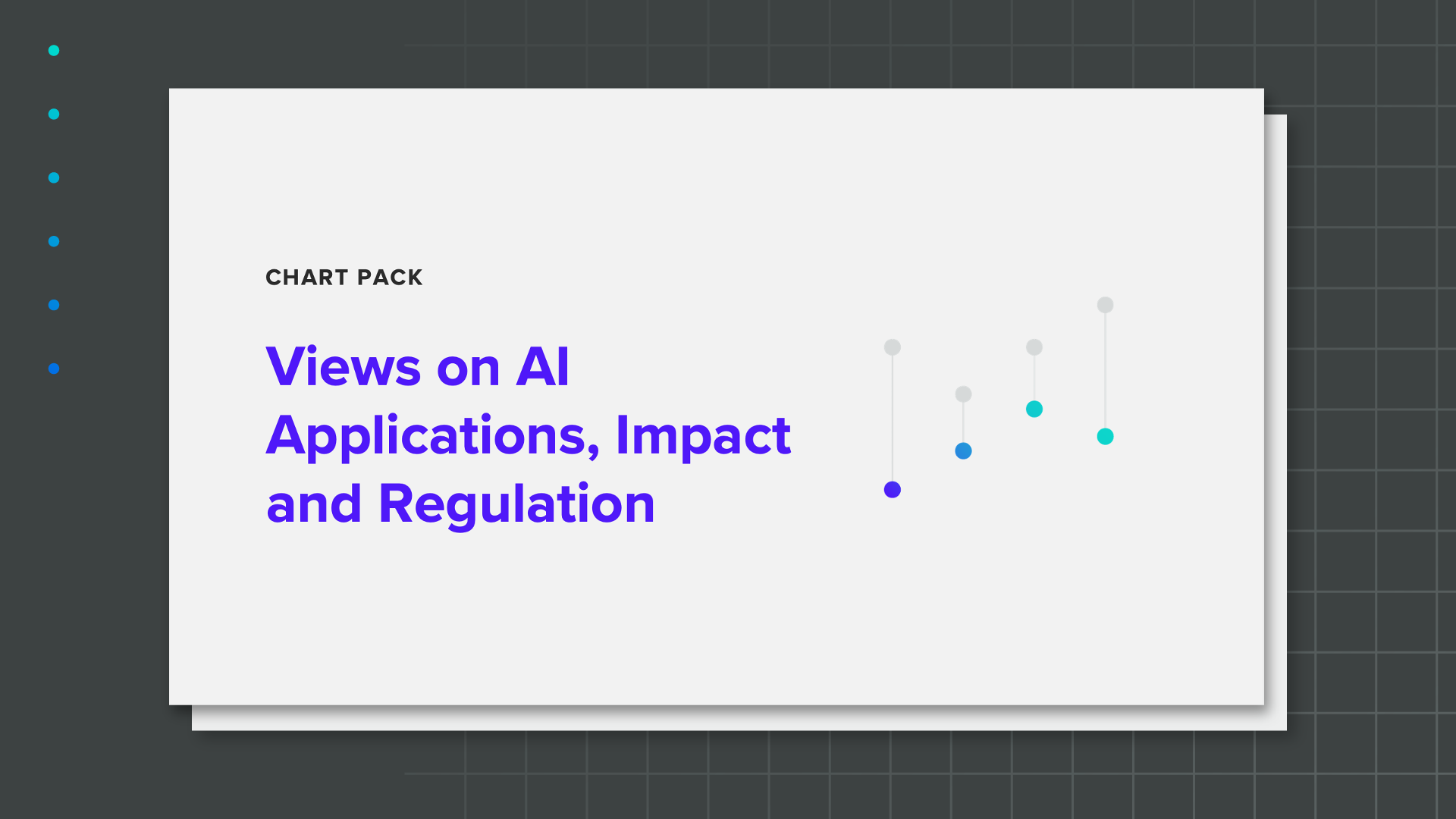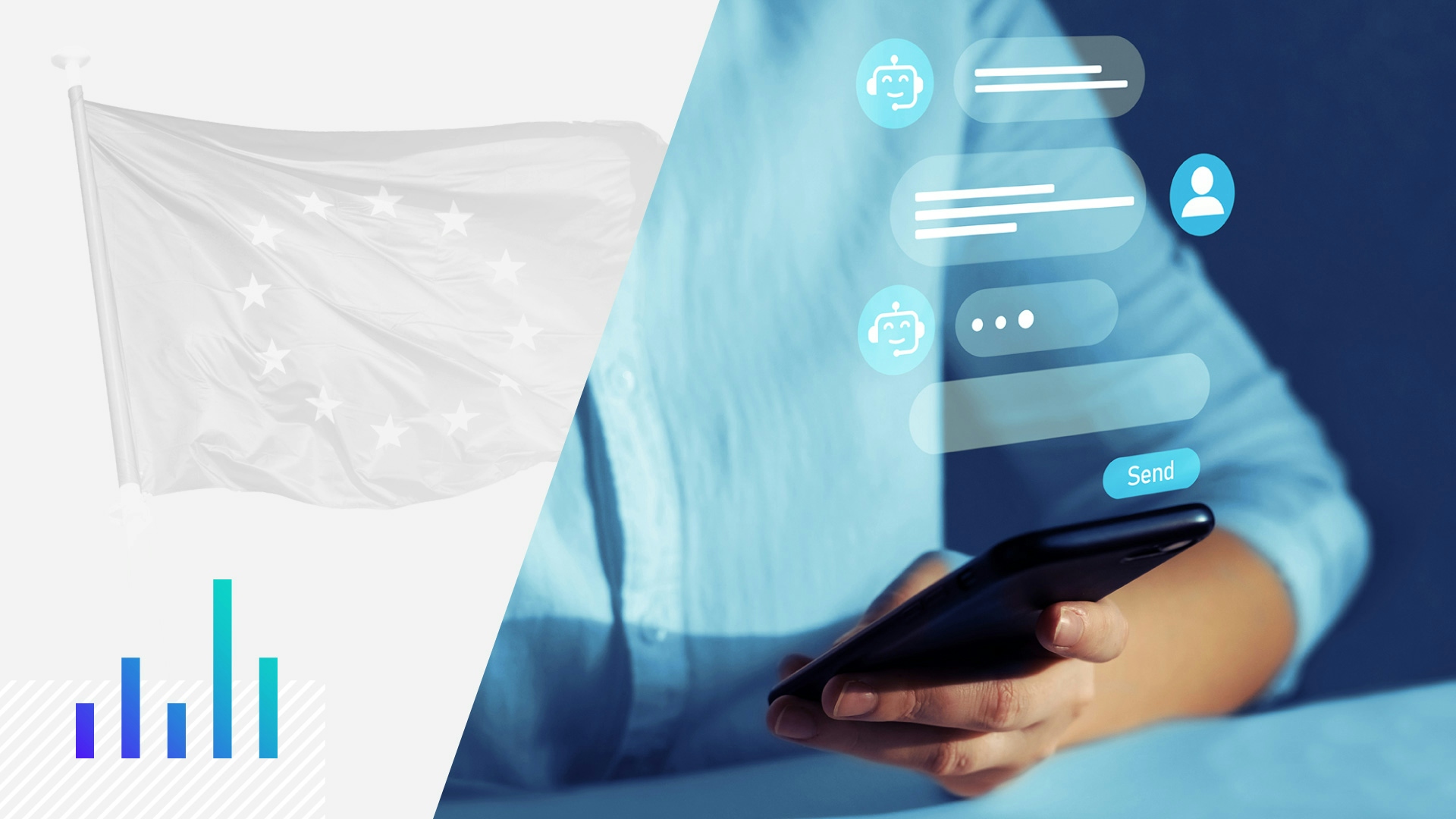AI is Everywhere. But Americans Are Concerned About Its Role in Health Care

Key Takeaways
7 in 10 U.S. adults said they are concerned about the increase in the use of artificial intelligence in health care.
AI has been used in health care before ChatGPT took the spotlight, but consumers are still largely uncomfortable with the technology, especially when it comes to applications like diagnosing health issues or developing a treatment plan.
Both health care workers and the public agree the use of AI in the industry will only increase. If companies grow their use of AI or implement it into their systems for the first time, the public wants to be notified.
For our latest health care data and analysis, sign up for our daily health news briefing.
So far, 2023 has been the year of artificial intelligence. From concerns about Skynet-like doomsday scenarios to “well actually” takes about how AI will significantly benefit society, the technology’s presence in mainstream culture has grown substantially since ChatGPT was released late last year.
Health care has used some version of AI for years, but much like other sectors, the technology has recently captured the industry’s attention in a unique way. The industry is not immune to common concerns about AI use — privacy, bias in algorithms, companies owning user data, etc. — but consumers may find it particularly risky due to the sensitivity of personal health data or use for services that would directly impact their health.
Specific demographics at scale: Surveying thousands of consumers around the world every day powers our ability to examine and analyze perceptions and habits of more specific demographics at scale, like those featured here.
Why it matters: Leaders need a better understanding of their audiences when making key decisions. Our comprehensive approach to understanding audience profiles complements the “who” of demographics and the “what” of behavioral data with critical insights and analysis on the “why.”
A new Morning Consult survey found that 7 in 10 U.S. adults are concerned about the increase in the use of AI in the health care industry, compared with 1 in 5 who said they are not concerned and 1 in 10 who said they don’t know or have no opinion.
Older Americans were more concerned than their younger counterparts: 77% of baby boomers and 70% of Gen Xers said they are concerned about the growing presence of AI in health care. However, younger people are not necessarily embracing AI either, as the majority of Gen Zers (63%) said they are concerned.
Worries About AI in Health Care Are Widespread, Especially Among Older Americans
People are more likely to be comfortable with AI use for administrative tasks than diagnosis and treatments
AI is not new to the health care industry. Companies and health care providers have used AI to detect irregular heartbeats, scan medical images and even help spot potentially cancerous lesions during colonoscopies. Many uses of AI in health care, including the previously mentioned applications, involve doctors and specialists at some level, and experts argue that doctors and specialists should remain part of the process.
AI in health care has also attracted the attention of massive technology companies like Google, Amazon and Microsoft, all of which have been growing their presence in the sector for years.
Despite consumer concerns about the embrace of AI — or, at least, caution — studies have shown that AI can improve certain parts of the health care system. A recent study of more than 80,000 women showed that AI-assisted readings of medical images improved breast cancer detection by about 20%, compared with traditional readings by oncologists. A study of AI use during colonoscopies showed that it reduced the rate doctors missed cancerous signs by 50%, which could be a significant benefit to patients as the study stated that the most relevant cause of post-colonoscopy colorectal cancer is missed signs of polyps or cancer.
Doctors also use AI software to transcribe recordings of their appointments with patients into their digital notes, which they argue allows them to speak directly with patients rather than sit behind a screen for the majority of their appointments.
Still, people are not overly comfortable with the application of AI across the health system.
But comfort levels vary depending on the task. Morning Consult’s data showed that people were more likely to be comfortable with the use of AI for administrative work than direct services, such as diagnosis or treatment plans. Nearly half of U.S. adults said they are comfortable with using AI to analyze medical data and history (49%), 15 percentage points higher than those who said they were comfortable with AI being used to assist during surgical procedures (34%).
The Public Is Less Comfortable With AI Use in Treatments, Diagnosis Than Administrative Tasks
As providers and Big Tech continue to embrace AI and algorithms in health care, there is plenty of concern about the industry falling in love with the technology too quickly.
While AI may help improve the accuracy of cancer identification, there are worries that the systems will be biased if there is not a diverse data set used to train the algorithms. Consumers may be more comfortable with AI use in more “administrative tasks,” but those tasks can ultimately impact care and billing. For example, Cigna was recently sued for using an algorithm to automatically deny medical claims in bulk, leaving patients responsible for bills that plans would have typically covered.
The overwhelming majority of people want to be notified if AI is used in any way
One major issue in health care is whether patients are notified when AI is being used as it could happen more “behind the scenes” rather than right in front of them. A Stat News investigation from June 2020 showed that hospitals were using AI-powered decision support tools without patients’ knowledge or consent.
As questions and concerns (and lawsuits) swirl around the growing presence of AI in health care, one thing is clear: Patients want to know when it is used.
At least 3 in 4 adults said they want to be notified when AI is used for a list of services surveyed, and even more so for nonadministrative applications, according to Morning Consult data.
More Than 3 in 4 Americans Say Health Care Providers Should Notify Patients When AI Is Used
Health care workers and the public agree: AI use will not decrease in the next five years
AI in health care has been around for years, but its presence in the industry has expanded over the past 10 months or so. And it’s not likely that AI will go away any time soon.
There was a meaningful gap between how the people in the industry view the use of AI in health care over the next five years compared with the general public. Among health care workers, 2 in 5 said AI use will increase in the next five years, compared with about 1 in 3 who said it would stay the same. For comparison, about 2 in 3 adults said AI use will increase over the next five years, while about 1 in 7 said it would stay the same.
Consumers Are More Likely Than Health Workers to Say AI Use WIll Grow in the Future
As companies continue to work AI into their practices, it may be a benefit to do so cautiously as the overwhelming majority of Americans are still concerned about the technology. Consumers are less comfortable with using AI for tasks that would directly impact their health, suggesting that it may take some time before people are comfortable with use for diagnosis, treatment plans or procedures.
If companies or providers do use AI, consumers have made it clear that they want to be notified.
Ricky Zipp previously worked at Morning Consult as a health care analyst on the Industry Intelligence team.


